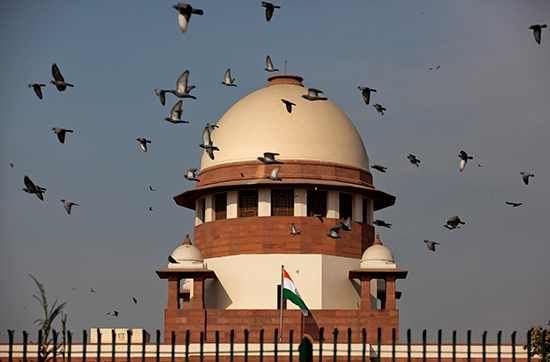New Delhi, May 10, 2017–An Indian Supreme Court order banning news media from quoting a judge who accused other senior judges of corruption is a troubling blow to freedom of the press, the Committee to Protect Journalists said today.
A bench of the Supreme Court headed by Chief Justice Jagdish Singh Khehar yesterday sentenced CS Karnan, a judge at the Kolkata High Court, to six months in prison on charges of contempt of court and ruled that “no further statements made by him should be reported hereafter.” The court in February 2016 stripped Karnan of his powers to pass judicial orders after Karnan accused senior judges of corruption, according to news reports.
The Supreme Court on May 1 ordered Karnan to undergo medical examination, according to media reports. The judge refused, and on May 8 ordered New Delhi police to imprison seven Supreme Court judges for five years and ordered them to pay fines on charges that they discriminated against him on the basis of his caste, according to media reports.
“The Indian Supreme Court’s blanket order barring any journalists from covering any statement from Justice CS Karnan amounts to prior censorship,” Steven Butler, CPJ Asia program coordinator, said from Washington, D.C. “The court needlessly resorted to overly broad measures to silence allegations of significant public interest.”
The Indian Express daily newspaper defied the court’s order by reporting Karan’s statements in a news article today.
“Usually, it’s been the government trying to spin a narrative or hinder free and fair reporting and it’s been the Supreme Court which has stepped in to protect — and often expand — the contours of free speech,” the newspaper said an accompanying editorial. “But now, in an unusual departure, it’s the highest court which has banned the press from reporting on the orders of Justice C.S. Karnan.”
Alok Prasanna Kumar, a lawyer based in Bengaluru city, told CPJ it remained unclear whether The Indian Express would face legal consequences for publishing Karnan’s remarks.
“The court can issue a notice and haul them up for civil contempt,” Kumar said. “If that happens, they should say that the order is illegal. They were never named in it…and are justified in asking the court to recall the order.”
